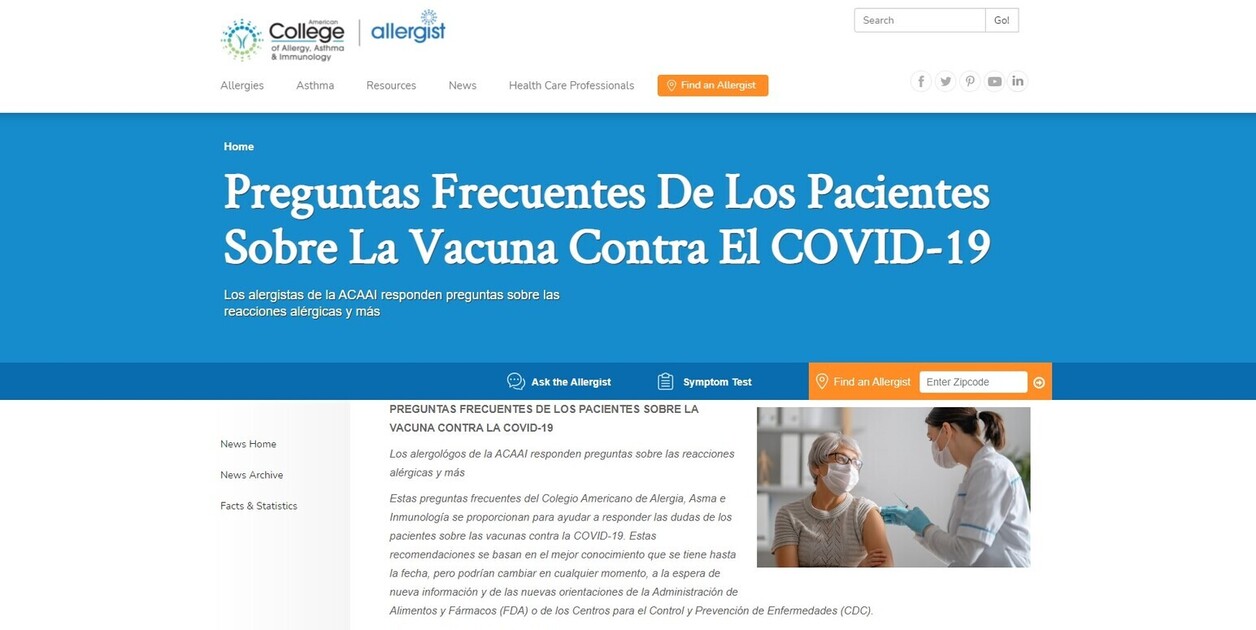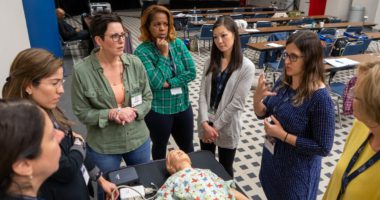As of 2019, about 13% of the U.S. population over the age of 5 speaks Spanish at home. That represents approximately 41 million people. Chances are, you have patients who would appreciate being able to find allergy and asthma resources in Spanish.
To expand the College’s reach with Spanish-speaking populations, the College has increased its Spanish language content. Some of the projects include:
Patient guides: Translations have been completed on three patients guides: Find Relief for Your Asthma, Find Relief for Your Child’s Asthma and Find Relief for Your Atopic Dermatitis. Two copies of all three guides (six total) were sent to practicing members for use with Spanish-speaking patients. The guides are intended for use in offices to assist allergists in better informing patients on their journey to find relief from allergic conditions. Translation of the guides was supported by Sanofi Genzyme and Regeneron.
COVID-19 patient resources: Translations were completed for two web-based COVID-19 resources for patients: COVID-19 vaccine guidelines and FAQs for patients. Unique views on the College website of the Spanish pages were impressive, particularly the FAQs for patients. From February (when it was posted) through April 2021, the FAQs had 19,864 unique views. In addition, Spanish subtitles were added to two of four COVID-19 videos on the College’s YouTube channel: COVID-19 Vaccine Update and How to breathe if you have a respiratory infection like COVID-19. When the College website launches its redesigned patient website this summer, a Spanish version of the College’s eczema page, also supported by Sanofi Genzyme and Regeneron, will be featured.
COVID-19 Spanish language webinar: The College held our first-ever Spanish language webinar, Vacunas COVID: Lo que todo Alergista debe saber (COVID vaccines: What every allergist needs to know) in April. To share COVID-19 vaccine information with allergists in Spanish-speaking countries, the webinar was offered at no cost to 19 allergy societies in Central and South America. The recorded webinar was also shared with Central and South American allergy societies.
The College plans to translate more resources moving forward in order to provide accurate, evidence-based information to those who speak Spanish and suffer from allergies and asthma.




